If you’re raising chickens and looking to harvest their eggs, you might wonder how often they lay eggs and how many you can expect.
Knowing this information is very important whether you’re looking to start a micro-farm from which you can make a living or just want enough eggs for the breakfast table.
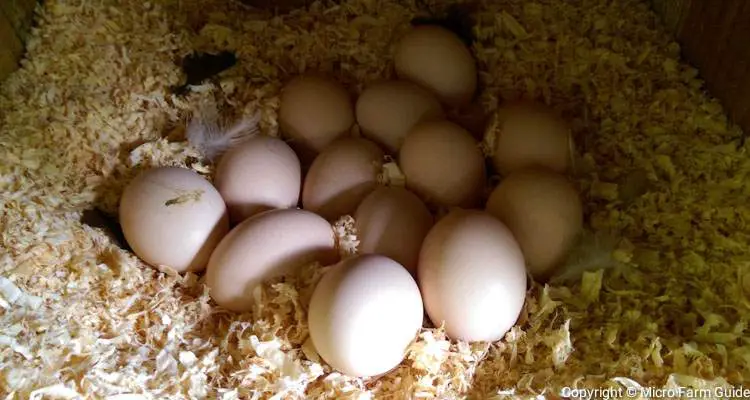
In this article, we will look at how often chickens lay eggs. We’ll also consider factors that can affect this and other things you should keep in mind.
How Often Do Chickens Lay Eggs?
Let’s begin with the main question of how often chickens lay eggs.
On average, most hens will lay one egg per day. However, this is affected by various factors such as the weather, amount of sunlight, age, nutrition, and if any predators are present.
Hens begin to lay eggs around 18 to 22 weeks, although some breeds will start later than this.
You can expect this to continue at a reliable rate for around two to three years. After this period, egg laying will become less reliable, and production will decline.
What Factors Can Affect The Frequency Of Egg Laying?
Although most hens will lay one egg daily, this isn’t always the case. Let’s look at some factors that can cause a decline in production.
Taking these factors into account can help you better plan how many eggs your chickens are likely to produce.
1. Hen’s Reproductive Cycle
Firstly, egg laying is a product of a hen’s reproductive cycle. As a result, the cycle is directly related to how often you get an egg.
Hens less than a year old are known as pullets, and these will begin laying eggs at around 18 weeks. The production might be slow initially, but it will gradually increase until they reach peak production a few weeks later.
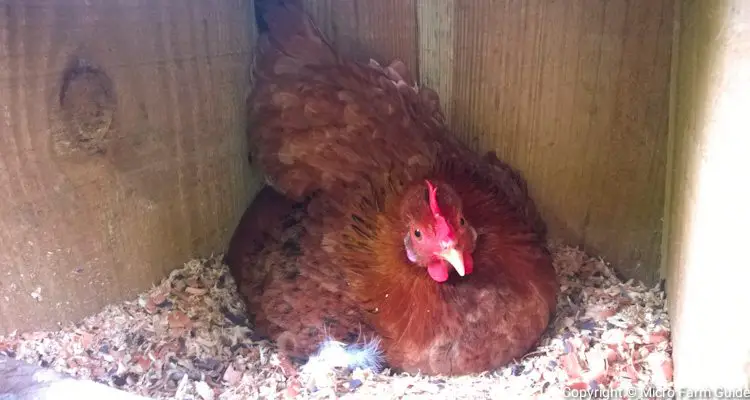
Most hens have a reproduction cycle that is between 24 and 27 hours long. This is why they will usually produce one egg a day. However, this also means that hens with 25-hour cycles, for instance, will lay their eggs an hour later each day.
Eventually, the time will get late enough that it hits late afternoon or evening, and most hens won’t lay an egg this late in the day. Instead, they will skip a day and start again the day after.
In light of this, you can expect an egg most days, but the occasional day will skip. A hen with a 25-hour cycle will lay more regularly than one which has a 27-hour cycle.
2. Breed Of Chicken
As is often the case with animals, certain breeds of chickens have been purposely bred and selected to make them as productive as possible.
Some chicken breeds such as Red Stars, White Leghorns, and Australorps will typically lay more eggs per year than other breeds. They have been bred to be expert layers, and you can expect a better return.
This doesn’t mean that other breeds aren’t good layers and shouldn’t be chosen to lay eggs. It means you can expect a more consistent and higher return with breeds bred to lay.
3. Weather And Time of Year
One of the most significant factors affecting the frequency of egg production is the weather and time of year.
Egg laying will be at its peak during the summer months, which have days full of sunshine.
Many hens will stop laying eggs if the number of daylight hours dips below 12, so you are bound to see fewer eggs produced as the days shorten and become colder.
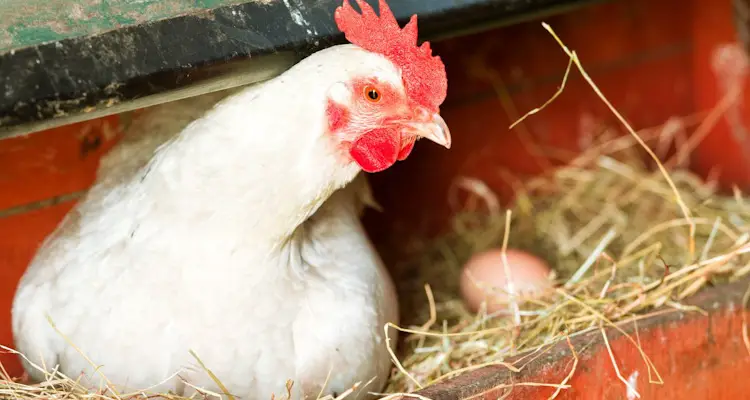
Some hens will still lay eggs only at a lower rate. Other hens may stop egg production altogether and instead use their energy to molt and regrow fresh feathers.
Many hens don’t like laying eggs during cold conditions, either. You may want to invest in heated pads or perches to help encourage your hens to continue laying eggs despite the colder temperatures.
If your hens continue laying throughout winter, you will want to grab the eggs as quickly as possible. Cold temperatures can cause the eggs to freeze or crack before you’ve even had a chance to collect them.
4. The Age Of The Hen
As we explained earlier, pullets typically begin laying eggs at 18 weeks. They are productive for a few years, and their laying frequency gradually reduces as they age.
This will begin to happen for most hens at around three to four years old. Most breeds of chicken will only live to about five to ten years old, so the reproductive cycle is expected to slow at around three or four years.
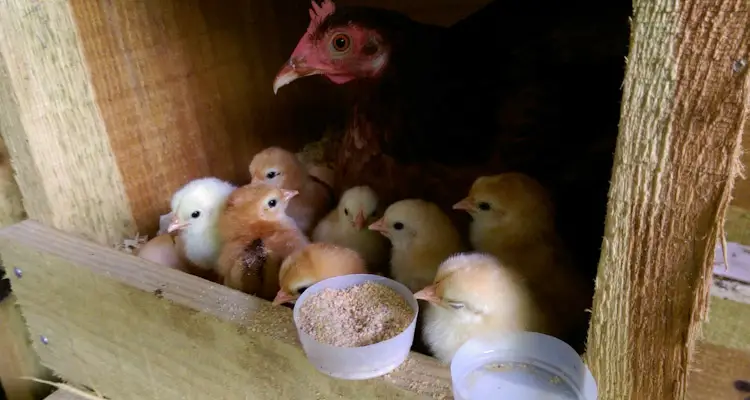
You will need to add some younger hens to your flock if you want to continue producing eggs as the years pass.
Unfortunately, there is nothing you can do to extend how long hens will produce eggs. Thankfully, older hens still have plenty of other uses around a farm.
Final Thoughts
We learned that hens will typically lay one egg per day.
However, many factors can slow the frequency of egg laying or cause days to be skipped, and these should be considered when estimating how many eggs a flock will lay.
We hope that the information included in this article has helped you understand how often chickens lay eggs and why they lay at the rate they do.
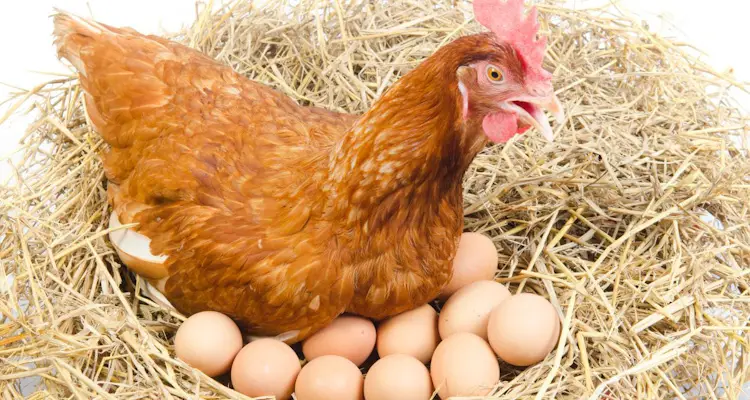
References
The University Of Minnesota Extension. Raising Chickens For Eggs. extension.umn.edu. Accessed October 2022
The University Of New Hampshire Cooperative Extension. Producing Your Own Eggs. [PDF] Accessed October 2022
The University Of Florida IFAS Extension. Raising Backyard Chickens For Eggs. ifas.ufl.edu. Accessed October 2022

